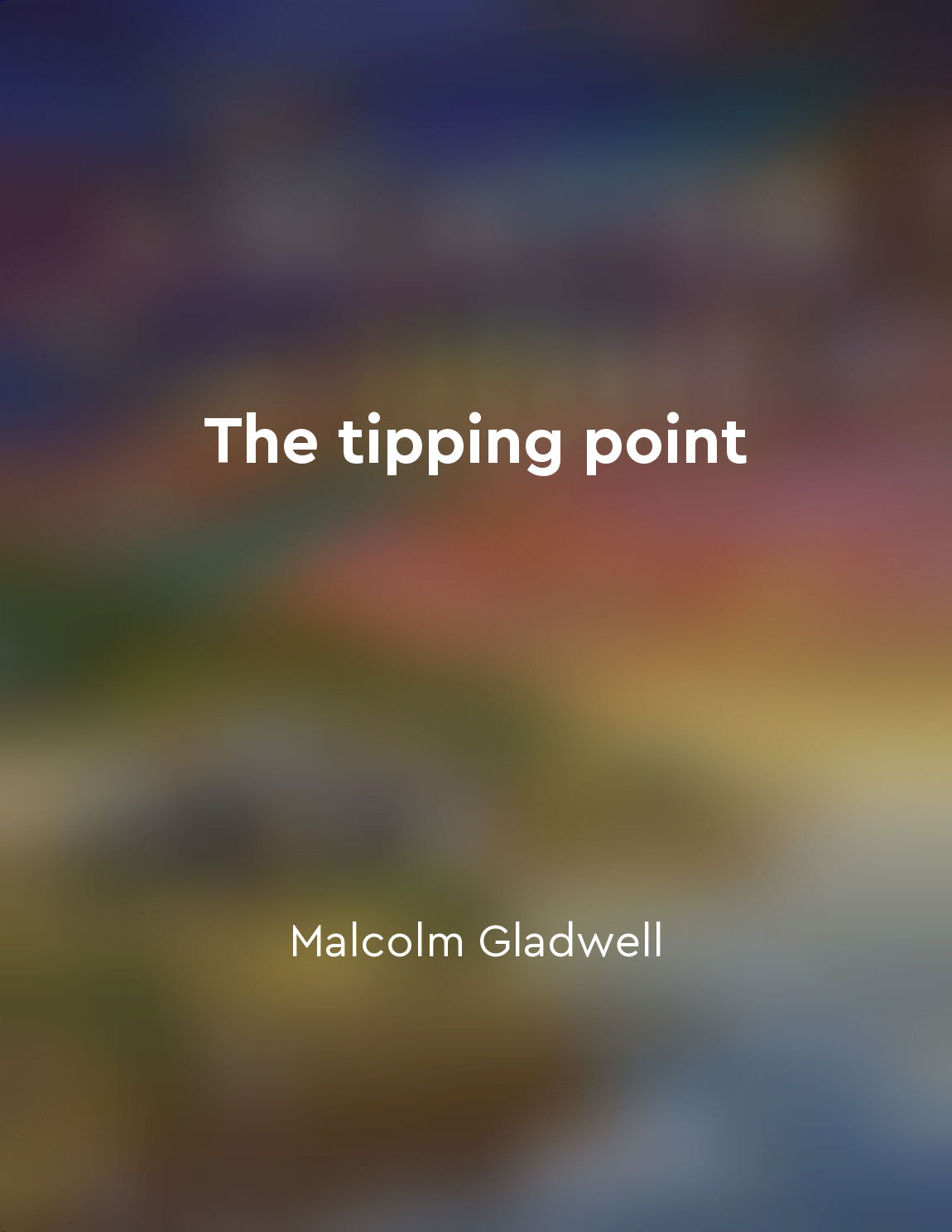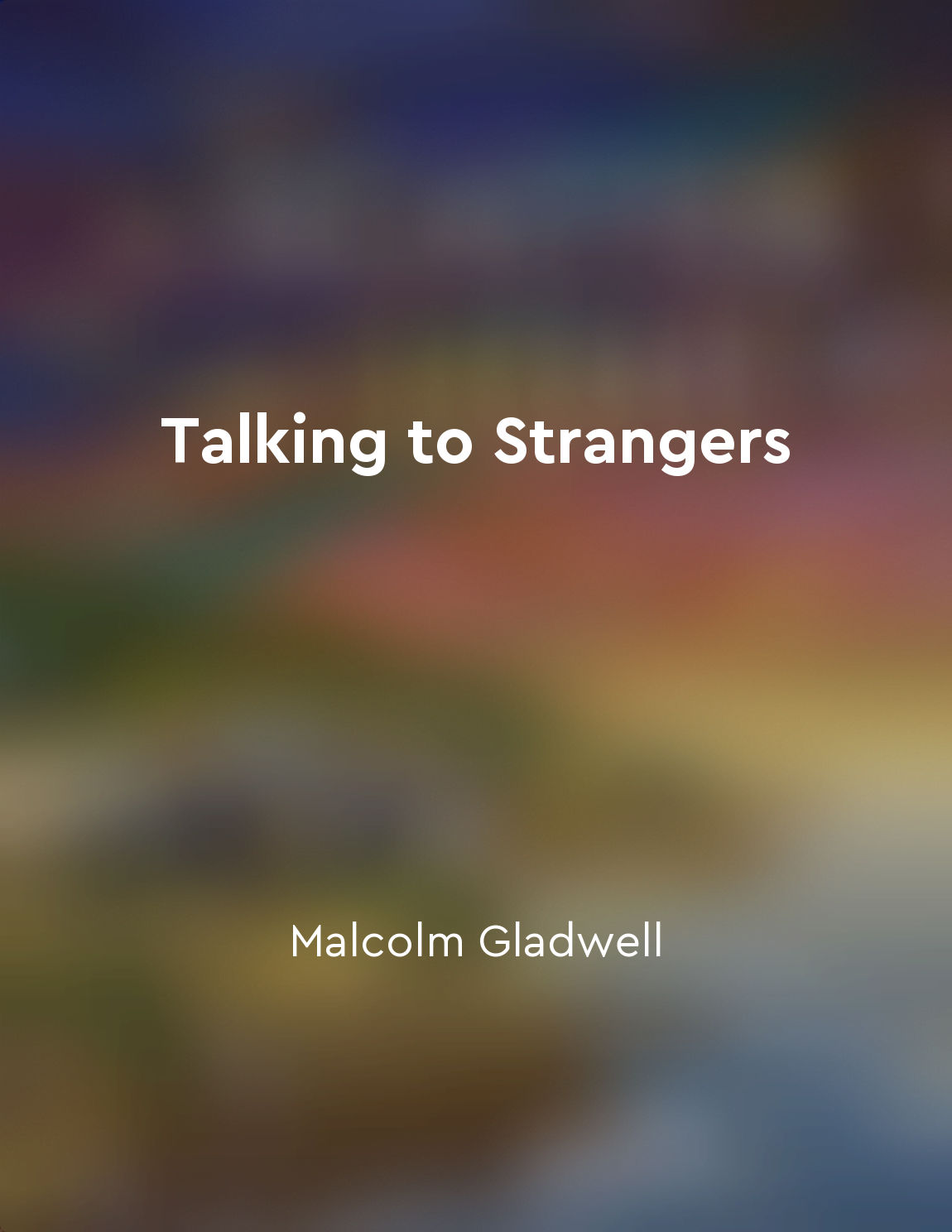Stereotypes can distort our perception of strangers from "summary" of Talking to Strangers by Malcolm Gladwell
Imagine a world where we could accurately judge people at first glance. A world where we could look at someone's face and know if they were telling the truth or hiding something. A world where stereotypes did not cloud our perception of strangers. But the reality is far from this ideal scenario. Stereotypes have a way of distorting our perception, leading us to make flawed judgments based on preconceived notions rather than actual evidence. We tend to rely on stereotypes as a way to quickly make sense of the world around us. It is a cognitive shortcut that helps us navigate through the complexities of social interactions. However, this shortcut can often lead us astray, causing us to misinterpret the intentions and behaviors of others. Our minds are wired to categorize people based on certain characteristics, such as race, gender, or social status. These categories then become the lens through which we view and interpret the actions of strangers. In his book, Malcolm Gladwell delves into the various ways in which stereotypes can distort our perception of strangers. He discusses how our reliance on these mental shortcuts can result in tragic consequences, as seen in high-profile cases of wrongful convictions and misunderstandings. Gladwell argues that we need to be more aware of our tendency to jump to conclusions based on stereotypes and instead strive to approach strangers with an open mind. One of the key points that Gladwell emphasizes is the importance of context in shaping our perceptions of strangers. The way in which we interpret someone's behavior is highly influenced by the environment in which it occurs. For example, a person may come across as hostile or aggressive in one setting but appear friendly and approachable in another. By taking into account the context in which we encounter strangers, we can better understand their actions and motivations. Furthermore, Gladwell highlights the role of communication in bridging the gap between strangers. Miscommunication is often at the root of misunderstandings and conflicts between people who are unfamiliar with each other. By learning to listen actively and empathetically, we can overcome the barriers created by stereotypes and connect with others on a deeper level. This approach requires us to set aside our preconceived notions and be willing to engage with strangers in a genuine and open manner.- Gladwell's exploration of how stereotypes can distort our perception of strangers serves as a reminder of the importance of approaching others with curiosity and empathy. By recognizing the limitations of our own biases and striving to see beyond stereotypes, we can foster a greater sense of understanding and connection with the diverse
Similar Posts

Connectors play a key role in spreading ideas
Connectors are individuals with a unique ability to connect people from different social circles and spread ideas rapidly. They...
Embrace your vulnerabilities to build genuine connections
To truly connect with others, you must allow yourself to be vulnerable. This may seem counterintuitive in a world that values s...

Interpreting meanings in different cultures can be challenging
Understanding meanings in different cultures can present a significant challenge for individuals engaging in intercultural comm...

Confronting privilege is uncomfortable but necessary
Confronting privilege requires a deep commitment to honesty and introspection. It calls for a willingness to acknowledge the wa...
The value of listening and being present for others
In a world where everyone seems to be in a hurry, where everyone is constantly rushing from one place to another, there is imme...


